 W
WThis is a timeline of Australian inventions consisting of products and technology invented in Australia from pre-European-settlement in 1788 to the present. The inventions are listed in chronological order based on the date of their introduction.
 W
WThe following is a list and timeline of innovations as well as inventions and discoveries that involved British people or the United Kingdom including predecessor states in the history of the formation of the United Kingdom. This list covers innovation and invention in the mechanical, electronic, and industrial fields, as well as medicine, military devices and theory, artistic and scientific discovery and innovation, and ideas in religion and ethics.
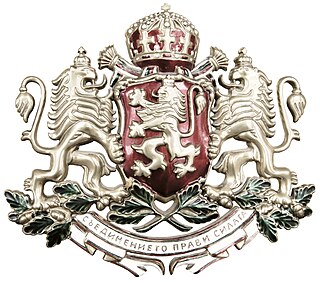 W
WThis is a List of Bulgarian inventors and discoverers, working locally or overseas. The list comprises people from Bulgaria and also people of predominantly Bulgarian heritage.
 W
WThis is a list of Byzantine inventions. The Byzantine or Eastern Roman Empire represented the continuation of the Roman Empire after a part of it collapsed. Its main characteristics were Roman state traditions, Greek culture and Christian faith.
 W
WThis timeline of chemistry lists important works, discoveries, ideas, inventions, and experiments that significantly changed humanity's understanding of the modern science known as chemistry, defined as the scientific study of the composition of matter and of its interactions.
 W
WAside from many original inventions, the Chinese were also early original pioneers in the discovery of natural phenomena which can be found in the human body, the environment of the world, and the immediate solar system. They also discovered many concepts in mathematics. The list below contains discoveries which found their origins in China.
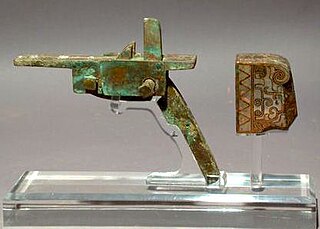 W
WChina has been the source of many innovations, scientific discoveries and inventions. This includes the Four Great Inventions: papermaking, the compass, gunpowder, and printing. The list below contains these and other inventions in ancient and modern China attested by archaeological or historical evidence, excluding prehistoric inventions of Neolithic and early Bronze Age China.
 W
WThis timeline of cosmological theories and discoveries is a chronological record of the development of humanity's understanding of the cosmos over the last two-plus millennia. Modern cosmological ideas follow the development of the scientific discipline of physical cosmology.
 W
WCroatian inventions and discoveries are objects, processes or techniques invented or discovered, by people from Croatia.
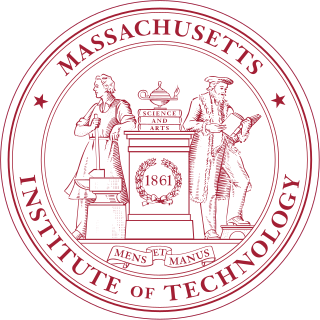 W
WMassachusetts Institute of Technology (MIT) is a private land-grant research university in Cambridge, Massachusetts. Established in 1861, MIT has since played a key role in the development of modern technology and science and has been ranked among the top academic institutions in the world.
 W
WStanford University, officially Leland Stanford Junior University, is a private research university in Stanford, California. The campus occupies 8,180 acres, among the largest in the United States, and enrolls over 17,000 students. Stanford is ranked among the best universities in the world.
 W
WThe University of California, Berkeley is a public land-grant research university in Berkeley, California. Established in 1868 as the University of California, it is the state's first land-grant university and the first campus of the University of California system. Its fourteen colleges and schools offer over 350 degree programs and enroll some 31,000 undergraduate and 12,000 graduate students. Berkeley is ranked among the world's top universities by major educational publications.
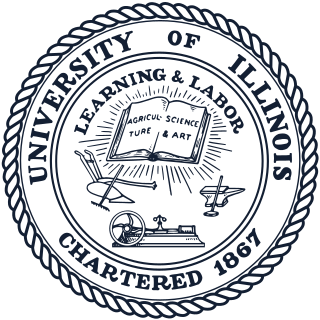 W
WThe University of Illinois Urbana-Champaign is a public land-grant research university in Illinois in the twin cities of Champaign and Urbana. It is the flagship institution of the University of Illinois system and was founded in 1867. Enrolling over 56,000 undergraduate and graduate students, the University of Illinois is one of the largest public universities by enrollment in the nation.
 W
WCarnegie Mellon University (CMU) is a private research university based in Pittsburgh, Pennsylvania. Founded in 1900, the university is a merger of the Carnegie Institute of Technology and the Mellon Institute of Industrial Research.
 W
WThe Netherlands had a considerable part in the making of modern society. The Netherlands and its people have made numerous seminal contributions to the world's civilization, especially in art, science, technology and engineering, economics and finance, cartography and geography, exploration and navigation, law and jurisprudence, thought and philosophy, medicine, and agriculture. Dutch-speaking people, in spite of their relatively small number, have a significant history of invention, innovation, discovery and exploration. The following list is composed of objects, (largely) unknown lands, breakthrough ideas/concepts, principles, phenomena, processes, methods, techniques, styles etc., that were discovered or invented by people from the Netherlands and Dutch-speaking people from the former Southern Netherlands. Until the fall of Antwerp (1585), the Dutch and Flemish were generally seen as one people.
 W
WThe Netherlands and its people have made numerous contributions to the world's civilization in art, science, technology and engineering, economics and finance, cartography and geography, exploration and navigation, law and jurisprudence, thought and philosophy, medicine and agriculture. The following list is composed of objects, (largely) unknown lands, breakthrough ideas/concepts, principles, phenomena, processes, methods, techniques, styles etc., that were discovered or invented by people from the Netherlands and Dutch-speaking people from the former Southern Netherlands. Until the fall of Antwerp (1585), the Dutch and Flemish were generally seen as one people.
 W
WThe Netherlands and its people have made contributions to in arts, science, technology and engineering, economics and finance, cartography and geography, exploration and navigation, law and jurisprudence, thought and philosophy, medicine. and agriculture. The following list is composed of objects, (largely) unknown lands, breakthrough ideas/concepts, principles, phenomena, processes, methods, techniques, styles etc., that were discovered or invented by people from the Netherlands and Dutch-speaking people from the former Southern Netherlands. Until the fall of Antwerp (1585), the Dutch and Flemish were generally seen as one people.
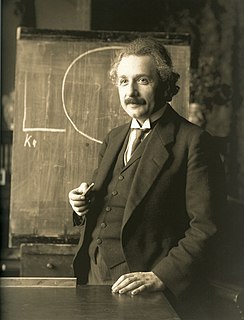 W
WGerman inventions and discoveries are ideas, objects, processes or techniques invented, innovated or discovered, partially or entirely, in Germany or abroad by a person from Germany. Often, things discovered for the first time are also called inventions and in many cases, there is no clear line between the two.
 W
WThis list of Indonesian inventions and discoveries details the indigenous arts and techniques, cultural inventions, scientific discoveries and contributions of the people of Indonesian archipelago — both ancient and modern state of Indonesia. As a developing nation, currently Indonesia suffers a shortage of scientific personnel and engineers. The lack of research and development, also hampers Indonesia's comparative competitiveness. Nevertheless, despite the shortcomings, its people and government continues their efforts to advance the nation's science and technology sectors. Among other things, by promoting innovation and technology through Indonesia Science Day.
 W
WThe list of inventions and discoveries of the Indus Valley Civilization refers to the technological and civilizational achievements of the Indus Valley Civilization, an ancient civilization which flourished in the Bronze Age around the general region of the Indus River and Ghaggar-Hakra River in what is today Pakistan and northwestern India.
 W
WThe following is a list of inventions made in the medieval Islamic world, especially during the Islamic Golden Age, as well as in later states of the Age of the Islamic Gunpowders such as the Ottoman and Mughal empires.
 W
WThis is a list of inventions and discoveries by Israeli scientists and researchers, working locally or overseas. There are over 6,000 startups currently in Israel. There are currently more than 30 technology companies valued over US$1 billion in Israel, more than all of Europe combined.
 W
WItalian inventions and discoveries are objects, processes or techniques invented, innovated or discovered, partially or entirely, by Italians.
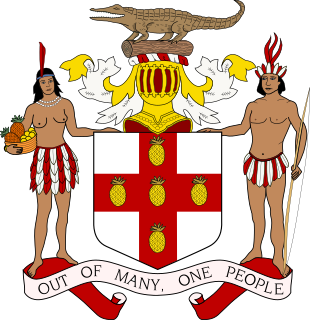 W
WJamaican inventions and discoveries are items, processes, ideas, techniques or discoveries which owe their existence either partially or entirely to a person born in Jamaica or to a citizen of Jamaica.
 W
WLeonardo da Vinci (1452–1519) was an Italian polymath, regarded as the epitome of the "Renaissance Man", displaying skills in numerous diverse areas of study. Whilst most famous for his paintings such as the Mona Lisa and the Last Supper, Leonardo is also renowned in the fields of civil engineering, chemistry, geology, geometry, hydrodynamics, mathematics, mechanical engineering, optics, physics, pyrotechnics, and zoology.
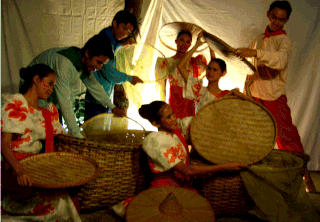 W
WThis article discusses Philippine inventions and discoveries the details the indigenous arts and techniques, cultural inventions, scientific discoveries and contributions of the people of Philippine islands — both ancient and modern state of the Philippines.
 W
WGreek inventions and discoveries are objects, processes or techniques invented, innovated or discovered, partially or entirely, by Greeks.
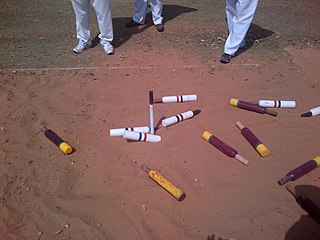 W
WThe following is a list and timeline of innovations as well as inventions and discoveries that involved South African people or South Africa including predecessor states in the history of the formation of South Africa. This list covers innovation and invention in the mechanical, electronic, and industrial fields, as well as medicine, military devices and theory, artistic and scientific discovery and innovation, and ideas in religion and ethics.
 W
WPortuguese discoveries are the numerous territories and maritime routes recorded by the Portuguese as a result of their intensive maritime exploration during the 15th and 16th centuries. Portuguese sailors were at the vanguard of European exploration, chronicling and mapping the coasts of Africa and Asia, then known as the East Indies, and Canada and Brazil, in what came to be known as the Age of Discovery. Methodical expeditions started in 1419 along West Africa's coast under the sponsorship of prince Henry the Navigator, with Bartolomeu Dias reaching the Cape of Good Hope and entering the Indian Ocean in 1488. Ten years later, in 1498, Vasco da Gama led the first fleet around Africa to India, arriving in Calicut and starting a maritime route from Portugal to India. Portuguese explorations then proceeded to southeast Asia, where they reached Japan in 1542, forty-four years after their first arrival in India. In 1500, the Portuguese nobleman Pedro Álvares Cabral became the first European to discover Brazil.
 W
WThe Portuguese inventions are the inventions created by the people born in Portugal, or whose nationality is Portuguese. These inventions were created mainly during the age of Portuguese discoveries, and during modernity.
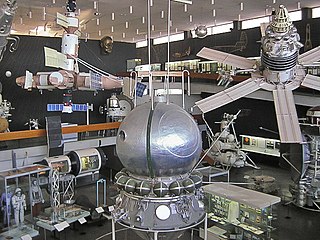 W
WThis timeline of Russian Innovation encompasses key events in the history of technology in Russia, from the Early East Slavs up to the Russian Federation.
 W
WLawrence Berkeley National Laboratory (LBNL), commonly referred to as Berkeley Lab, is a United States national laboratory that conducts scientific research on behalf of the Department of Energy. Located in the hills of Berkeley, California, the lab overlooks the campus of the University of California, Berkeley.
 W
WScottish inventions and discoveries are objects, processes or techniques either partially or entirely invented, innovated, or discovered by a person born in or descended from Scotland. In some cases, an invention's Scottishness is determined by the fact that it came into existence in Scotland, by non-Scots working in the country. Often, things that are discovered for the first time are also called "inventions" and in many cases there is no clear line between the two.
 W
WThis is a list of stationery topics. Stationery has historically pertained to a wide gamut of materials: paper and office supplies, writing implements, greeting cards, glue, pencil cases and other similar items.
 W
WTimeline of United States discoveries encompasses the breakthroughs of human thought and knowledge of new scientific findings, phenomena, places, things, and what was previously unknown to exist. From a historical stand point, the timeline below of United States discoveries dates from the 18th century to the current 21st century, which have been achieved by discoverers who are either native-born or naturalized citizens of the United States.
 W
WA timeline of United States inventions (1890–1945) encompasses the ingenuity and innovative advancements of the United States within a historical context, dating from the Progressive Era to the end of World War II, which have been achieved by inventors who are either native-born or naturalized citizens of the United States. Copyright protection secures a person's right to his or her first-to-invent claim of the original invention in question, highlighted in Article I, Section 8, Clause 8 of the United States Constitution which gives the following enumerated power to the United States Congress:To promote the Progress of Science and useful Arts, by securing for limited Times to Authors and Inventors the exclusive Right to their respective Writings and Discoveries.
 W
WA timeline of United States inventions (1946–1991) encompasses the ingenuity and innovative advancements of the United States within a historical context, dating from the era of the Cold War, which have been achieved by inventors who are either native-born or naturalized citizens of the United States. Copyright protection secures a person's right to his or her first-to-invent claim of the original invention in question, highlighted in Article I, Section 8, Clause 8 of the United States Constitution which gives the following enumerated power to the United States Congress:To promote the Progress of Science and useful Arts, by securing for limited Times to Authors and Inventors the exclusive Right to their respective Writings and Discoveries.
 W
WA timeline of United States inventions encompasses the ingenuity and innovative advancements of the United States within a historical context, dating from the Contemporary era to the present day, which have been achieved by inventors who are either native-born or naturalized citizens of the United States. Patent protection secures a person's right to his or her first-to-invent claim of the original invention in question, highlighted in Article I, Section 8, Clause 8 of the United States Constitution which gives the following enumerated power to the United States Congress: To promote the Progress of Science and useful Arts, by securing for limited Times to Authors and Inventors the exclusive Right to their respective Writings and Discoveries.
 W
WThe United States provided many inventions in the time from the Colonial Period to the Gilded Age, which were achieved by inventors who were either native-born or naturalized citizens of the United States. Copyright protection secures a person's right to his or her first-to-invent claim of the original invention in question, highlighted in Article I, Section 8, Clause 8 of the United States Constitution, which gives the following enumerated power to the United States Congress:To promote the Progress of Science and useful Arts, by securing for limited Times to Authors and Inventors the exclusive Right to their respective Writings and Discoveries.